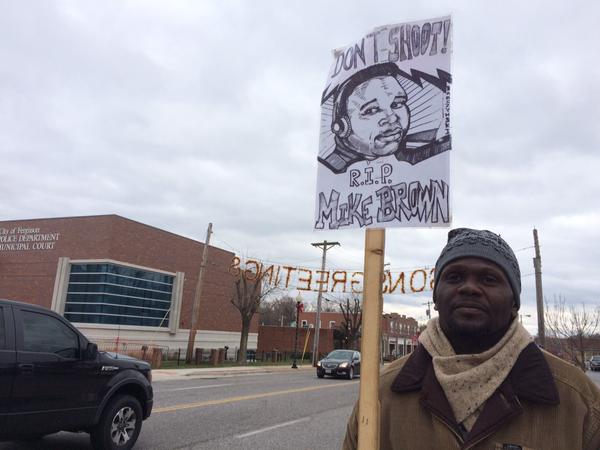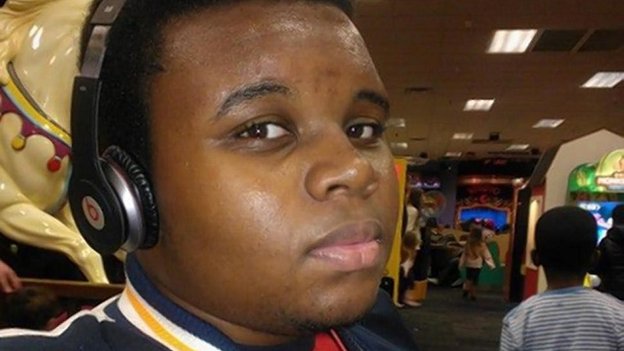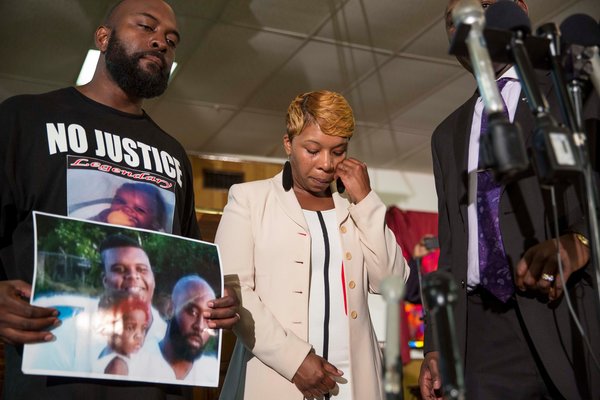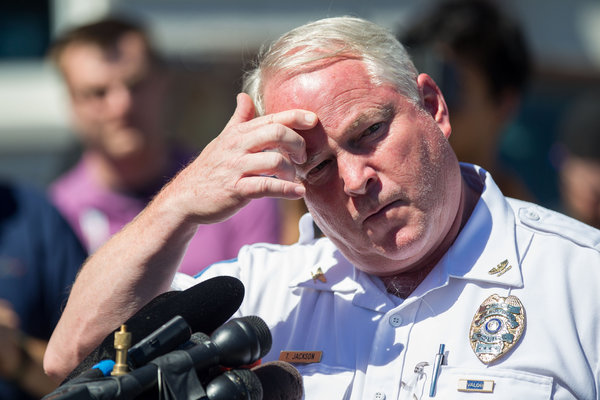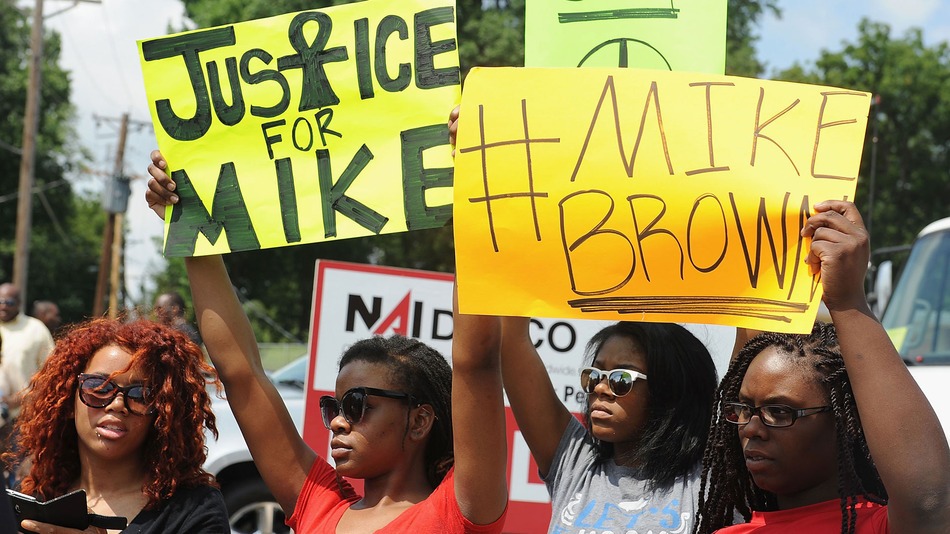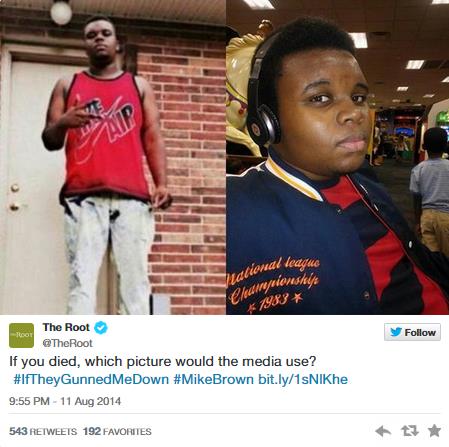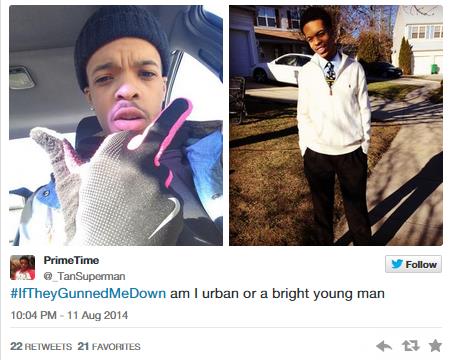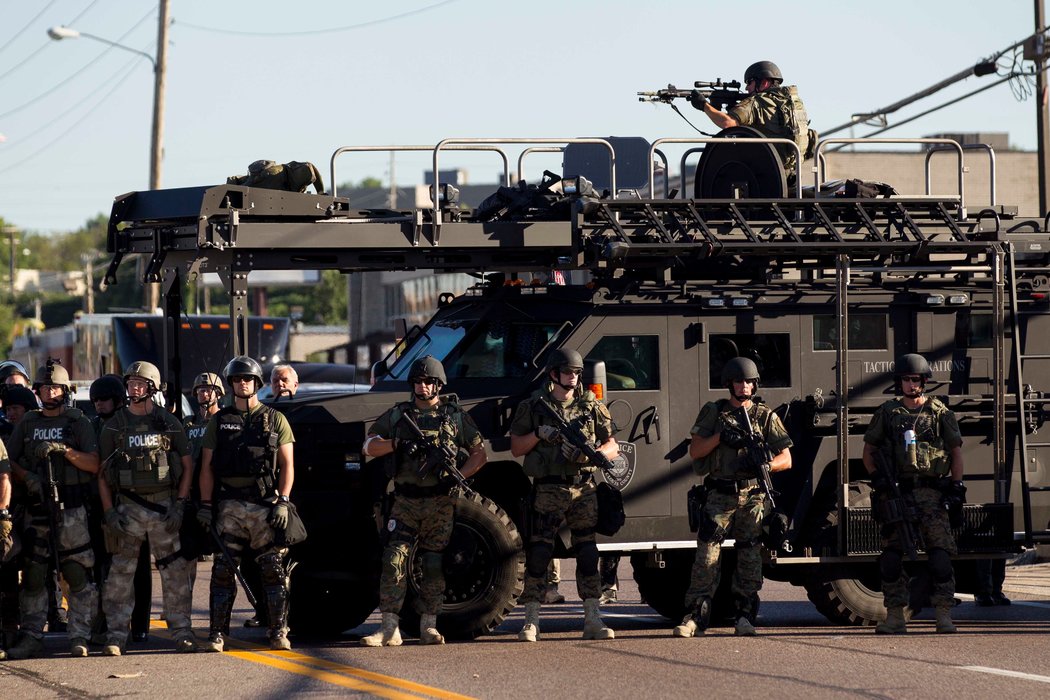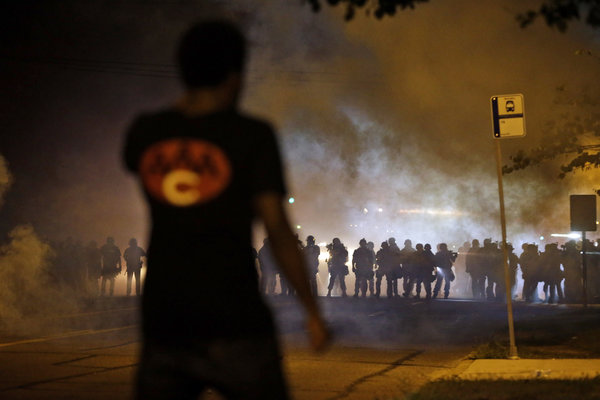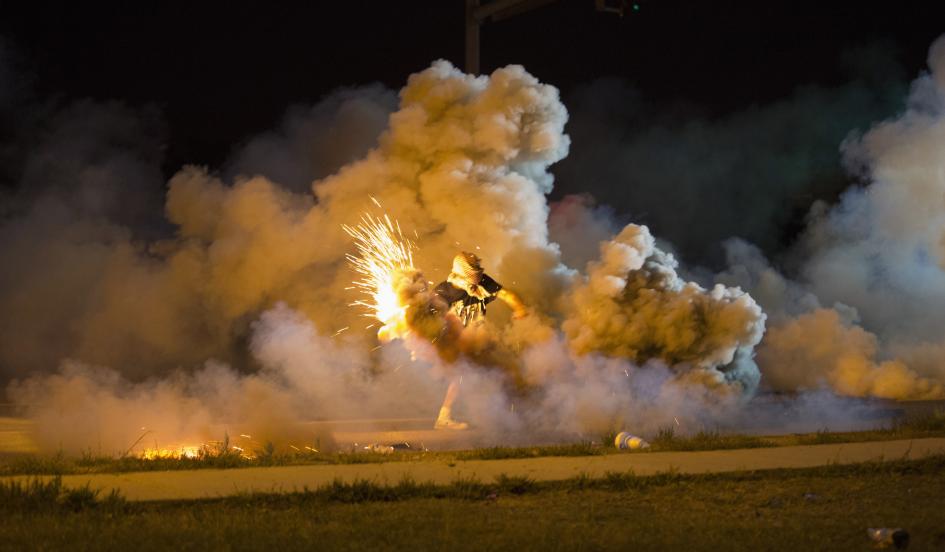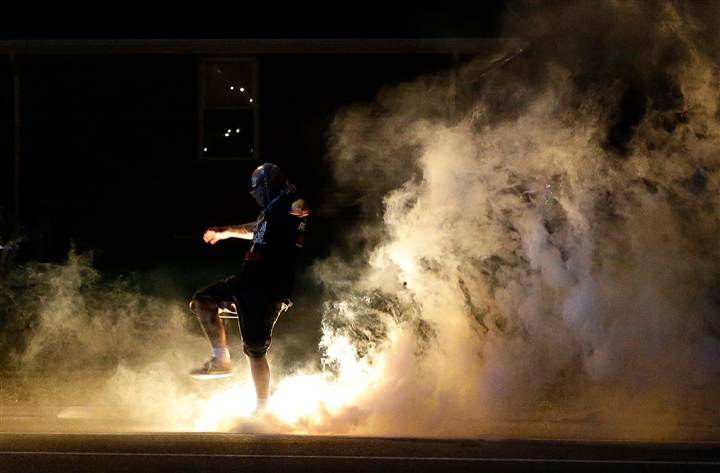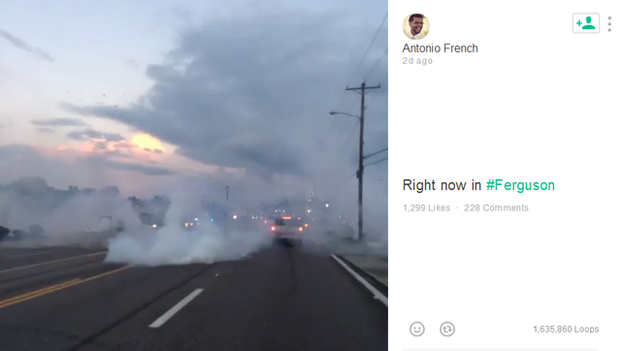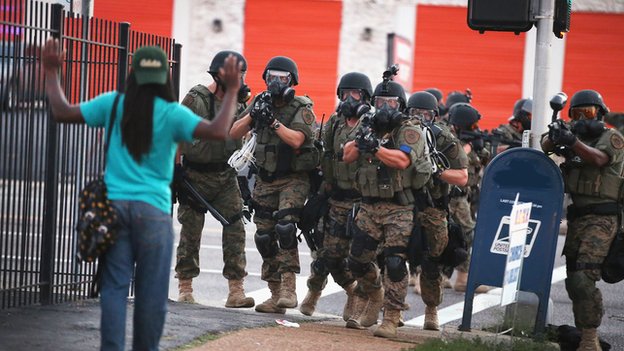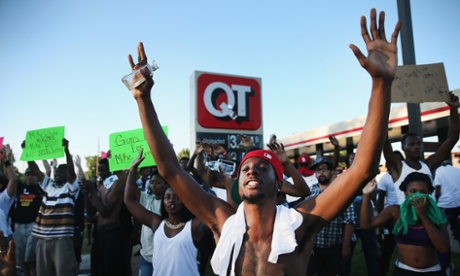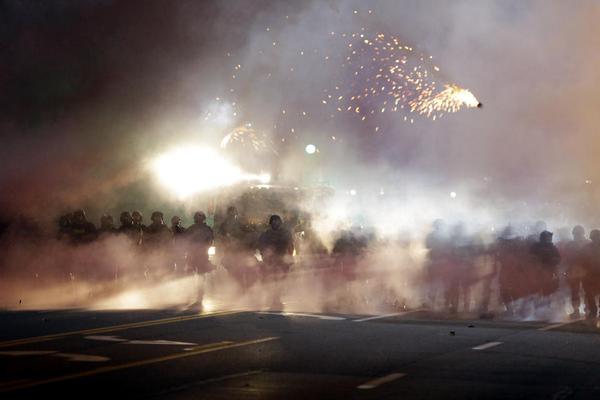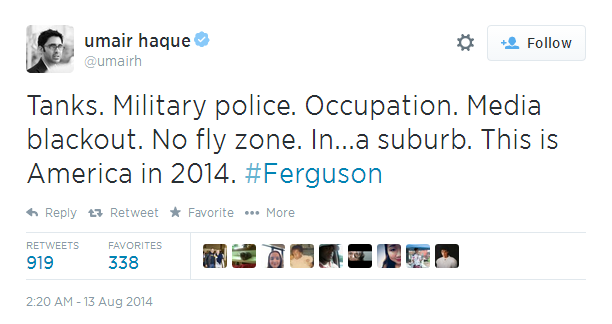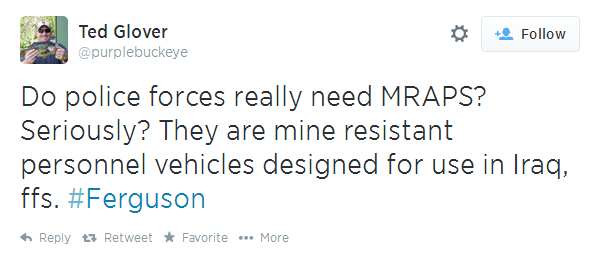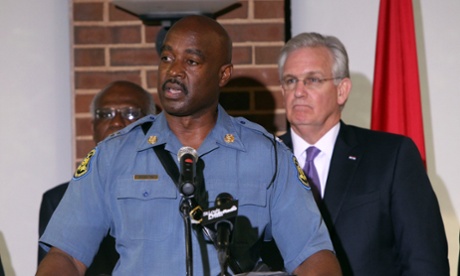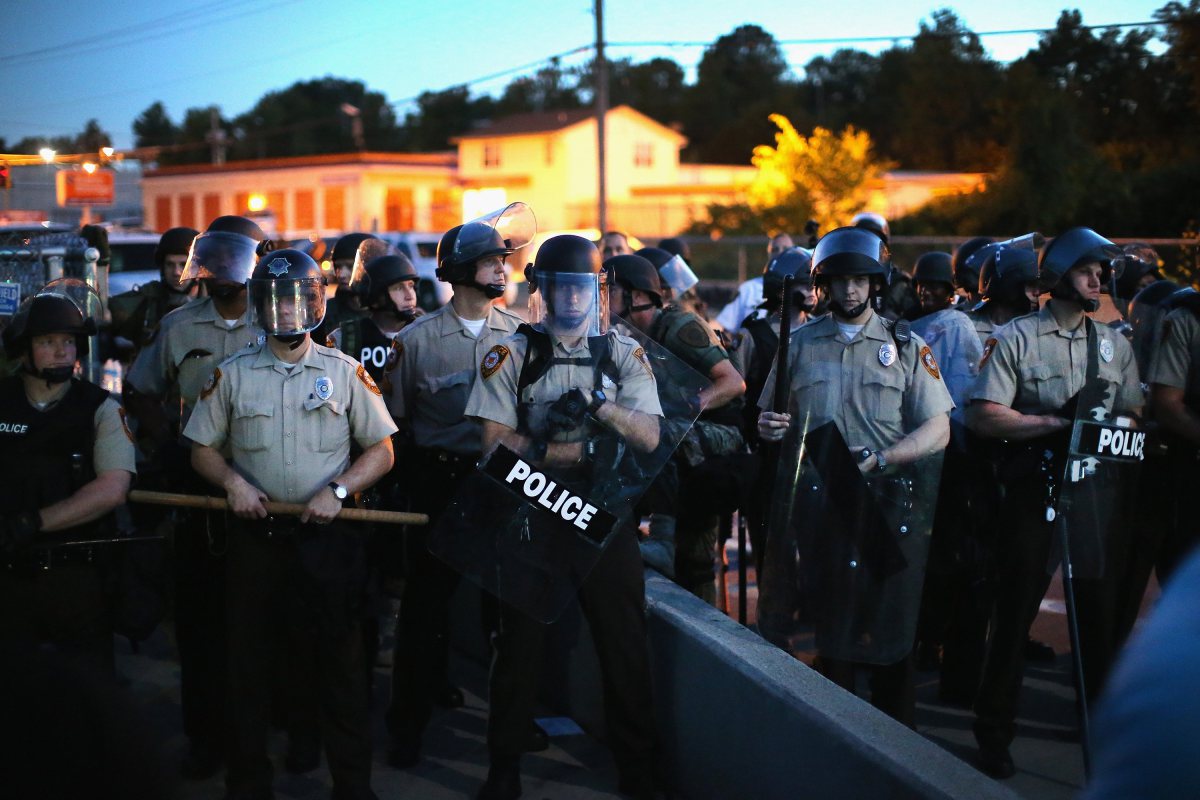The Killing Of 18-Year-Old Michael Brown In Ferguson: Everything You Need To Know
A look at how events in Ferguson unfolded after Michael Brown was shot and killed by a police officer on 9 August 2014.
Ferguson Police Officer Found Not Guilty In Michael Brown Shooting
A Missouri grand jury has decided not to indict Ferguson police Officer Darren Wilson in the August 9 shooting death of Michael Brown, St. Louis County Prosecuting Attorney Robert McCulloch said Monday night. After an "exhaustive review," the jurors deliberated for two days, he said. The grand jurors are "the only ones who have heard all the evidence," McCulloch said. Brown's father is "devastated" that Wilson will not face charges, a spokeswoman for Michael Brown Sr. told CNN's Evan Perez.
cnn.comGrand jurors were “the only people who heard every witness,” he said, “and every piece of evidence.” Many witnesses presented conflicting statements that ultimately were inconsistent with the physical evidence. He declined to release the vote of the grand jury, which was made up of nine whites and three blacks, saying that the process was secret.
Unlike a jury in a criminal case, which convicts someone if jurors are convinced of guilt "beyond a reasonable doubt," a grand jury decides whether there is "probable cause" to charge someone with a crime, based on testimony and evidence presented. In Missouri, grand jurors don't have to be unanimous to indict, as long as nine of the 12 agree on a charge.
cnn.comBrown's family is asking for four and a half minutes of silence before any protests begin, family representative Janie Jones said. "We are not here to be violent. We are here in memory of our son. We are here for protection of all children. We are here to support justice and equality for all people. We lift our voices to ensure black and brown men, women and children can live in this country without being devalued because of the color of our skin," the family said in a statement.
cnn.comSome three months ago, on 9 August 2014, Michael Brown, a black 18-year-old who was unarmed, was reportedly shot and killed by police Officer Darren Wilson in Ferguson, a predominantly black suburb of St. Louis in Missouri
The details of the shooting are in dispute. Brown was walking to his grandmother's house with a friend on Saturday afternoon when the two were approached by a police officer, according to Brown's family. The reason for the approach has not yet been revealed by the local police department, but officials say the officer and Brown became involved in an altercation in the officer's car.
The police said the two were vying for the officer's gun — Brown was unarmed — though Ferguson residents have balked at that claim. Brown's friend has said that the officer tried to force Brown into the car after approaching the teens, who were walking in the street instead of on the sidewalk.
At least one shot was fired in the car, but the officer shot Brown multiple times, killing him. The St. Louis County Police Department is still investigating the number of shots the officer fired. Brown wound up about 35 feet from the car when he was killed. Brown's body remained on the street, guarded by police, for hours after the shooting.
Michael Brown Sr. and Lesley McSpadden, while mourning their son, asked supporters to remain peaceful.
Image via nyt.comHowever, the selective release of information about the shooting, and especially the anonymity granted to the officer, has stoked frustrations in the largely African-American community, where residents describe increasingly tense relations with the police
The city’s police chief, Thomas Jackson, has declined to release the name of the officer who shot Michael Brown
Image via nyt.comThe police chief, Thomas Jackson, has repeatedly declined to identify the officer, who has been put on administrative leave. But on Wednesday, the chief did offer a new detail about the shooting, which has kindled nights of racial unrest and an unyielding police response with tear gas, rubber bullets and arrests.
Despite persistent and increasingly angry calls from the public to release the officer’s name, Chief Jackson said the officer required protection after numerous death threats had been made. Computer hackers, saying they were outraged by police conduct, now have also joined the fray. Anonymous, the loosely organized group of international hackers, said on Twitter that it had broken into Ferguson’s municipal computer system. It released details about city workers and posted photos of Jon Belmar, the chief of the St. Louis County police who is conducting the investigation into the shooting, as well as his wife, son and daughter. It also posted his address and phone number. The group threatened to bring down city, county and federal networks if the police overreacted to rallies and protests.
wsj.comChief Jackson said that the officer who shot Michael Brown, 18, on Saturday was struck in the face during the encounter and treated at a hospital. Touching his own cheek, the chief said that a side of the officer’s face was swollen from what the police have described as a struggle in which Mr. Brown assaulted the officer and tried to take his gun — an account disputed by a witness, a friend of Mr. Brown’s who said his hands were raised when the last of several shots was fired.
Demonstrators and journalists ran from tear gas fired by the police in Ferguson, Mo., on Wednesday.
Image via nyt.comBrown had just graduated from high school and was set to start college at nearby Vatterott College on Monday. He was also a member of the U.S. Army's Junior Reserve Officers Training Corps and a player on his high school football team.
He also had an eye for business; the St. Louis Post-Dispatch reported that Brown ran a fledgling operation in middle school, selling candy to classmates.
"You took my son away from me," Brown's mother, Lesley McSpadden, told local TV news station KMOV. "Do you know how hard it was for me to get him to stay in school and graduate? You know how many black men graduate? Not many. Because you bring them down to this type of level, where they feel like they don't got nothing to live for anyway. 'They're going to try to take me out anyway.'"
Soon the hashtag #IfTheyGunnedMeDown began cropping up on Twitter, focusing on how the media portrayed Brown
Each tweet contained two images of a young black man or woman — one, depicting the person in an act of valor (in a suit or graduation gown); the other of that same person hanging out in street clothes and posing for the camera.
On Wednesday night, 13 August, scores of police officers in riot gear and in armored trucks showed up to disperse protesters who had gathered on the streets near the scene of the shooting
The police before a rally Wednesday in Ferguson, Mo., where a teenager was shot by an officer last week.
Image via nyt.comSome officers perched atop the vehicles with their guns trained on the crowds while protesters chanted, “Hands up, don’t shoot.”
A police spokesman said that some demonstrators had thrown Molotov cocktails at officers and that some had tried to set fires. The police used tear gas on demonstrators, and some protesters said rubber bullets had been fired at them. Police said one officer appeared to have suffered a broken ankle after being hit by a brick.
Police walked through a cloud of smoke during a clash with protesters on Wednesday in Ferguson
Image via nyt.comThe police made more than 10 arrests. According to reports, among those arrested were The Huffington Post's Ryan Reilly and Wesley Lowery of The Washington Post.
A protester throws back a smoke bomb while clashing with police in Ferguson, Missouri August 13, 2014
Image via newsweek.comAmong those arrested was Antonio French, a St. Louis alderman, who had been documenting the protests on social media, his wife said on Twitter. Two reporters covering the protests also said they had been arrested inside a McDonald’s for trespassing and later released without charges or an explanation. The reporters, Wesley Lowery of The Washington Post and Ryan J. Reilly of The Huffington Post, both said they had been handled roughly by the police.
newsweek.comA protester kicks a smoke grenade that had been deployed by police back in their direction on Wednesday in Ferguson, Missouri.
Image via s-nbcnews.comThe situation in Ferguson after the shooting of Brown has led some commentators to dub the suburb "Fergustan" on social media, suggesting the area now resembles a "war zone"
St. Louis Alderman Antonio French has been documenting the protests in Ferguson on the social media platform, Vine.
Image via bbcimg.co.ukAs local and county police have taken to the streets to contain the unrest, many have questioned whether their show of force has been too excessive. In one photo, police officers are responding to the protests in armoured vehicles, initially developed to withstand improvised explosive devices.
Other photos show police wearing army green shirts and camouflage pants, similar to the uniforms of US marines, and carrying guns based on the military-used M4 carbine. Videos reveals smoke clouds of what appears to be tear gas, inundating empty streets that were at one point filled with protesters.
"Some of the images we're seeing are indiscriminate shows of force - the stopping of people and the pointing guns at people," says Radley Balko, who has written two books on the militarisation of US police. "This is slowly becoming a default reaction in emergency situations - the only way to stop a situation is an overwhelming force and turning large sections of cities into martial law zones."
Ferguson's population is 67% black, but 50 out of 53 police officers under Thomas Jackson, the police chief, are white - that's 94%
Demonstrators protest the killing of teenager Michael Brown on August 12, 2014 in Ferguson, Missouri.
Image via guim.co.ukFigures published last year by Missouri’s attorney general showed seven black drivers were stopped by police for every white driver, and that 12 times as many searches were carried out on black drivers as white. The sharp disparities fuel mistrust, residents said.
mo.govAsked about race relations at a press conference on Wednesday, Ferguson police chief Thomas Jackson acknowledged that there was a “community that is at odds with us now”. He said: “Apparently there has been this undertow that has now bubbled to the surface.”
Addressing a town hall meeting in Ferguson earlier this week, Cornell Brooks, the president of the National Association for the Advancement of Colored People (NAACP), said that police in the city must address a “subculture” of prejudice. “Sometimes that means putting more people in uniform that look like me,” he said.
“I’ve been trying to increase the diversity of the department since I got here,” Jackson insisted on Wednesday, pointing out that he had promoted black officers and describing his pursuit of diversity as a “constant struggle”.
Screenshot of some of the Twitter users reacting to photographs and citizen media of police in Ferguson
Meanwhile, on 14 August, the governor of Missouri stood down the police force that had been leading the policing of demonstrations, after President Obama added his voice to widespread criticism of a military-style crackdown
Captain Ronald S Johnson, a Ferguson native, promised a new approach and has said he would visit the ‘ground zero' of protests
Image via guim.co.ukJay Nixon handed responsibility for law and order to the Missouri state highway patrol, led by an African American captain raised in the town at the heart of four nights of violent confrontation since the shooting of Michael Brown by police on Saturday.
On Thursday night the change appeared to be paying dividends — tensions were melting away and an almost festive atmosphere broke out, with police stopping to chat with demonstrators and residents. “We all have been concerned about the vision that the world has seen,” Nixon said. He admitted that Ferguson, a suburb of St Louis had, come to resemble a “war zone”.
Promising a “softer front”, Nixon said that a new command would ensure that “we allow peaceful and appropriate protests, that we use force only when necessary, that we step back a little bit”. But Nixon declined to rule out the use, if necessary, of the military equipment deployed so controversially on Ferguson’s streets this week.
 vox.com
vox.com
Ronald Johnson, captain of the highway patrol, signalled a different tone. He told reporters: “Before I came here today, I had all my troopers take their teargas masks off their belts”. Johnson promised a new approach and said he would visit the torched QwikStop gas station “that has been called Ground Zero” to talk to people.
Nixon said that St Louis county police, although removed from the front line, would continue to lead the investigation into Brown’s death. He added that the name of the officer who shot the 18-year old dead, for which the campaigners filed a lawsuit on Thursday, should be released “expeditiously as possible”.
Speaking from Martha’s Vineyard, where he is on vacation, Obama said that while looting and violence against law enforcement officials was unacceptable, there was “no excuse” for police to use excessive force in response. “We lost a young man in heartbreaking and tragic circumstances,” Obama said. “He was 18 years old and his family will never hold Michael in their arms again.”
 vox.com
vox.com
Appealing for restraint, he added: “Now’s the time for healing, now’s the time for peace and calm on the streets of Ferguson.” Obama’s comments came after a fourth night of confrontation in Ferguson, where residents of the majority black town of 21,000 people have been protesting against the killing of Brown by an officer from the overwhelmingly white police force.
